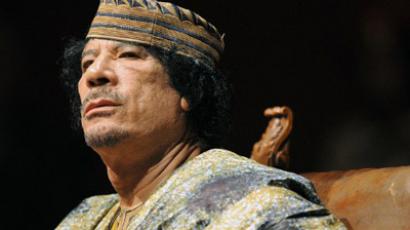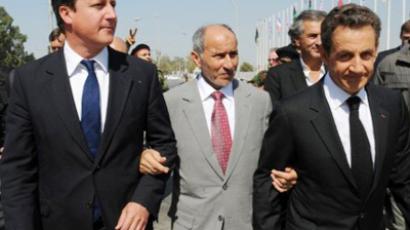Humanitarian guns for hire: West's mercenary mission
With the UK and other Western forces still in Libya, a prominent British journalist argues that control of oil was the real motivating factor. Rebels in oil-rich countries everywhere can count on the West as a mercenary army in their revolutions.
“I do not believe that sovereign states have a legal right or an obligation or a duty to interfere in other sovereign states… This was not a country that threatened Britain, it didn’t threaten any of its neighbors and didn’t invade a neighbor. It was going about its own business,” British author and Guardian journalist Simon Jenkins told RT.The excuse that there might have been something nasty about to happen in Benghazi was the justification for invading the country. Access to the Mediterranean and oil were the real causes of the Libyan war, Jenkins argues.Profit and control are behind intervention in foreign countries, he insists.“There are mixed motives in all these interventions. We tend to be intervening in the countries where we think we might win… We tend to intervene in countries where we have some interests, in this case oil.”The UN resolution was used as a cover for British-French intervention ambitions, the journalist believes.“We decided that there is going to be a massacre in Benghazi, we decided we needed the UN resolution written in a certain way. We claimed to be going in to protect civilians while we ended up bombing them.”As a result of the military intervention in Libya, Britain and France have a very strong responsibility to make absolutely sure that this does not fail. And that may well mean sending in troops, Jenkins warns. “When you invade a country you can’t then say ‘we’ve done our job, we’re going to go,’ because people look to you to continue the revolution you started and aided.”The message that the war in Libya sends out is that the West is effectively a mercenary army for any rebel group. “Provided you make enough stink in the country, then Britain and France might come along and help your revolution,” according to the journalist.“I think it’s dangerous to world peace,” he adds.Jenkins believes the West is now looking for a new target. However, he doubts that it will turn its attentions to Iran, as it is too large. Given that Western forces have not intervened in conflicts in Syria or Yemen, Jenkins argues that they choose their targets very randomly and likens them to a “mercenary force that is roaming the world looking for things to do.”“The West is highly biased, it’s loaded, it’s interested in oil,” he claims.Libya should be left alone, he said, and concluded that as there is no more British empire it is not Britain’s responsibility to invade other countries.














